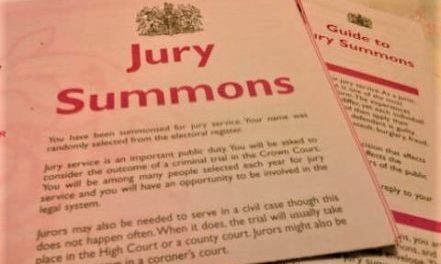
Jury Service
Most people on the Electoral Register are eligible to be officially requested to do jury service at a Crown Court. Random selection of people aged 18-75 is made by a computer. Jurors must have been resident in the UK for at least 5 years since their 13th birthday. Jury service is deemed to be a citizen’s duty but is also an exercise of our democratic right to judge the law.
The principle behind juries is to have unbiased decisions on trial outcomes. Therefore, each juror must be a stranger to all involved in the prosecution and defence. A juror can be rejected for mental impairment or if they fail a DBS check and/or is a convicted criminal.
If a chosen person does not attend the Court on the notified date, they can be fined £1,000. Of the group of jury candidates that are summoned, 12 will be chosen by the Court Clerk (15 in Scotland). However, a juror can also be rejected by the lawyers and one of the remaining candidates put in their place.
Verdicts of ‘guilty’ or ‘not gullty’ are decided by a simple majority of 10, except in Scotland, where the majority is 8 and a third option of ‘not proven’ can be decided.
(Image [cropped]: Ian Forrester at Flickr.com / CC BY-NC-SA 2.0)
